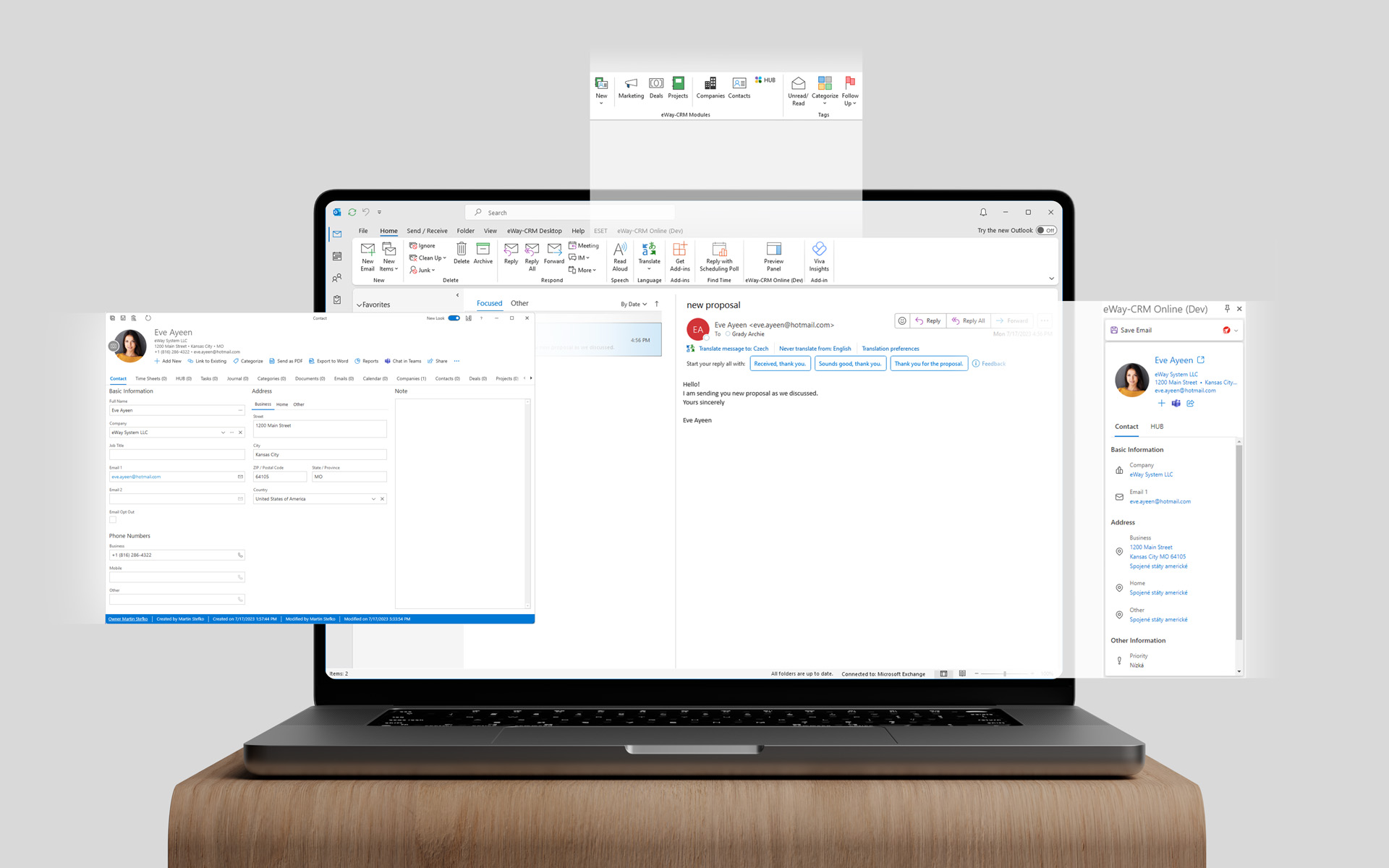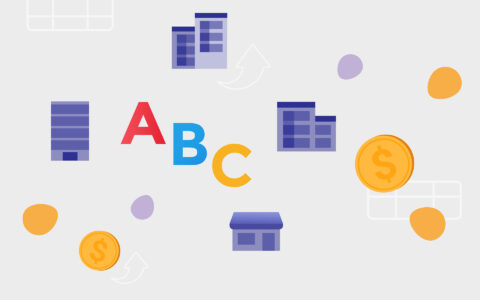The roofing industry is unlike any other. Exposed to the elements, roofers tackle everything from urgent leak repairs after a heavy downpour to full installations on newly-constructed homes. With the business often being seasonal and demand-driven by unpredictable events like storms, managing client interactions becomes an even more pressing challenge.

Amidst the hustle of project timelines, diverse job scopes, and varying customer needs, a systematic approach to management is imperative. A CRM system, designed to consolidate and streamline customer relations and operational tasks is not a luxury, it’s a necessity for roofing businesses.
But with a myriad of options in the market, how does one pick the best roofing CRM software? And how can integration with tools like Outlook make a difference? In this article, we'll explore the undeniable importance of CRMs for the roofing realm and guide you in pinpointing the best fit. Join us as we lay the foundation.
Table of Contents:
The Necessity of CRM for Roofing Businesses
Why the Roofing Industry Has Unique CRM Needs
The Power of Integrating with Outlook
Simplicity is Key: Choosing the Best Roofing CRM Software
Nailing It Down: The Important Role of CRMs in Roofing's Future
The Necessity of CRM for Roofing Businesses
In any business, understanding and managing customer interactions is vital. But for roofing businesses, given their unique demands, this aspect becomes even more crucial. Here's a look into why a CRM system is indispensable for those in the roofing industry:
Streamlined Client Management
The roofing business isn’t just about fixing and installing roofs; it’s about the number of relationships built along the way. With clients ranging from individual homeowners to large contractors or property managers, the volume of interactions can be daunting.
A CRM provides a structured platform to store client details, preferences, and past project histories, ensuring that no detail is overlooked, and every interaction is personalized.
Efficient Scheduling and Job Tracking
Roofing projects come with their unique timelines – be it an emergency repair that requires immediate attention or a long-term renovation scheduled months in advance.
A CRM helps roofing businesses stay on top of these timelines, schedule appointments, allocate resources, and monitor the progression of each job.
This not only enhances operational efficiency but also ensures timely service, strengthening customer trust.
Enhanced Customer Service
Roofing issues can be stressful for home and business owners. They’re looking for quick, effective, and reliable solutions. With a CRM, roofing businesses can store all client communications in one place.
Whether it's an initial inquiry, a complaint, or a follow-up call, having access to this consolidated information enables teams to address concerns more coherently and efficiently. This responsive approach fosters a reputation for exceptional service and client satisfaction.
Why the Roofing Industry Has Unique CRM Needs

While many industries benefit from the organizational powers of a CRM system, the roofing sector stands out with its distinct challenges.
Here's a closer look at why roofing businesses have specific CRM needs:
Seasonal Demand
In most regions, roofing is largely a seasonal affair. While summers might bring a rush of projects, winters could be quieter. Then there are unexpected spikes in demand after severe weather events, such as storms or hail.
A CRM tailored for roofing can assist businesses in anticipating these peaks and troughs, allowing them to manage staffing, inventory, and marketing efforts more effectively.
Diverse Project Sizes
A day in the life of a roofer could range from mending a small leak for a homeowner to orchestrating a large-scale installation for a commercial complex. The diversity in project scale demands different resources, timelines, and costs.
A roofing-specific CRM can offer features that help businesses categorize these projects, allocate appropriate resources, and ensure that both small and large-scale tasks receive the required attention.
Warranty and Service Calls
Roofs, unlike many other products, usually come with long-term warranties. Managing these warranties—knowing which products were used on which roofs, the duration of the guarantees, and the stipulations involved—is vital for both customer service and legal compliance.
A CRM tailored for roofing businesses can help track these details, schedule timely check-ins or maintenance, and ensure that any warranty-related claims are promptly addressed.
In essence, the roofing industry is not just about laying tiles or fixing leaks. It's a complex interplay of client needs, seasonal demands, varied project scopes, and long-term commitments.
A generic CRM might miss the mark, but one designed with the roofing business in mind will address these challenges head-on. This ensures businesses not only survive but thrive.
The Power of Integrating with Outlook

Email remains a dominant mode of communication in the business world, and the roofing industry is no exception.
With vast interactions spanning clients, suppliers, contractors, and team members, an email platform like Outlook is a central hub for many roofing businesses. But what happens when this hub seamlessly integrates with a CRM system?
Let's delve into the advantages of this powerful combination:
Direct Email Queries Management
Every email inquiry—whether it's a homeowner seeking a quote, a supplier providing details of a new shipment, or a contractor confirming work dates—holds importance.
An integration of CRM with Outlook ensures that these emails don't just sit in an inbox but are channeled directly into the CRM system. This streamlines the process, guaranteeing that each inquiry or piece of information is recorded, categorized, and acted upon without delay.
Simplified Communication
Juggling between email platforms and CRM systems can be cumbersome. An integrated system reduces this hassle. All email correspondences can be viewed and managed directly within the CRM, providing the necessary context to client interactions.
A unified view ensures teams are always on the same page, eliminating potential communication mishaps or oversights.
Calendar Syncing
For a roofer, the calendar is often packed with appointments, site visits, deadlines, and more. When a CRM system integrates with Outlook, calendar synchronization ensures that all these crucial dates and appointments are reflected on both platforms.
This dual visibility allows for better resource allocation, helps avoid scheduling conflicts, and ensures timely service delivery.
Incorporating tools like Outlook into the CRM framework isn't just about technological synergy. It's about enhancing operational efficiency, improving client interactions, and ensuring that no communication thread, however minor, is overlooked.
For roofing businesses aiming to excel in this digital age, such integrations are not just useful—they're indispensable.
Simplicity is Key: Choosing the Best Roofing CRM Software

With a plethora of CRM options flooding the market, selecting the right one can seem like looking for a needle in a haystack. However, for these businesses, the best roofing CRM software should be straightforward, adaptable, and comprehensive.
Here's a deeper dive into the features that matter:
User-Friendly Interface
Teams don't have the luxury of time to navigate complicated software. A CRM should be intuitive, with a user-friendly interface that requires minimal training.
eWay-CRM emerges as a standout in this regard. It's a CRM that sits right inside the familiar interface of Outlook, ensuring that even those who aren’t tech-savvy can harness its features effortlessly.
Customization and Pricing
Every roofing business has its unique set of needs and budget constraints. A one-size-fits-all solution can be limiting. eWay-CRM shines here by offering not only different pricing options but also a robust free plan. This allows businesses, whether startups or established entities, to find a plan that aligns with their budget and requirements.
Comprehensive Modules
A CRM shouldn't just be about managing customer interactions; it should encompass the entire business process.
eWay-CRM includes pivotal modules that cater to various facets of a roofing business:
Sales Management: Track leads, monitor sales processes, and oversee transactions seamlessly. Simply clicking on a company or contact will bring up all sales history.
Projects Management: Manage project timelines, schedule tasks, allocate resources, and ensure timely completion.
Email Marketing: Design and dispatch effective email campaigns to engage both potential and existing customers.
Contacts and Companies: Maintain an organized directory of all stakeholders, from suppliers and contractors to clients.
Training and Support
Even with the most user-friendly CRM, questions or challenges can arise. eWay-CRM understands this, offering robust support to its users, and ensuring that businesses can make the most of the platform without hitches.
In the vast ocean of CRMs, simplicity, flexibility, and comprehensiveness become the guiding lights. And as seen with offerings like eWay-CRM, when these elements come together, roofing businesses can transcend operational challenges, streamlining processes and boosting customer satisfaction.
Nailing It Down: The Important Role of CRMs in Roofing's Future
The roofing industry, with its unique challenges and demands, requires tools that don’t merely fit but enhance operations. Embracing technology, especially a dedicated CRM, isn't just about staying updated; it’s about creating a foundation for consistent growth and improved customer relationships.
A CRM tailored to the roofing industry, such as eWay-CRM, provides a holistic approach, managing every facet from client inquiries to project completions. With modules addressing sales, projects, email marketing, and contact management, roofing businesses can centralize their operations. This ensures that every stakeholder, be it a customer or a supplier, experiences streamlined interactions.
When every detail can make a difference in building lasting business relationships, integrating systems like Outlook with CRMs amplifies efficiency and responsiveness. As roofing businesses continue to evolve, embracing tools that resonate with their unique needs becomes not just an option but a necessity for sustained success.
As we draw our exploration to a close, the overarching message is clear: In the realm of roofing, the right CRM is more than software—it's a strategic partner for growth.
A scaling business calls for efficient task management to thrive. Learn more about the software that assists with this in Top Picks for 2023: The Best CRM Scheduling Software Solutions.











